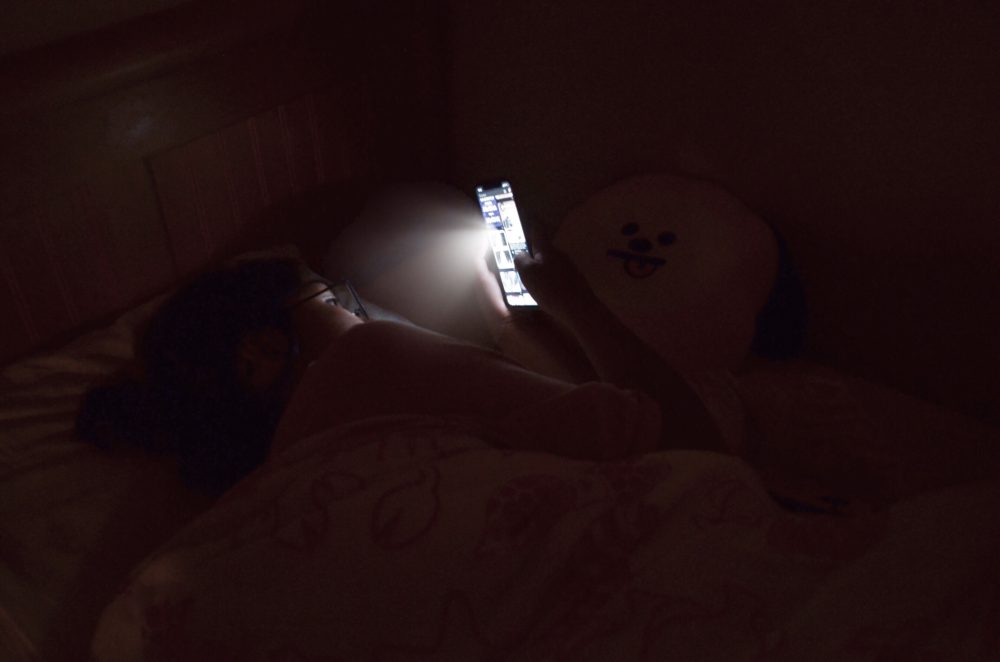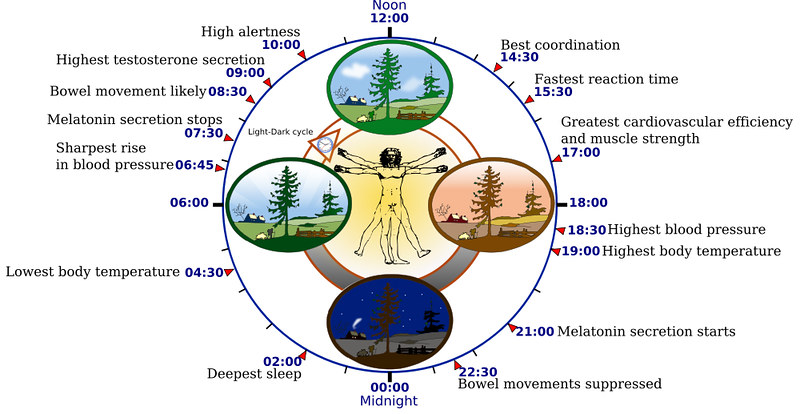
by Arden Nguyen, Staff Writer
The clock nears midnight. You lie in bed, turn on your phone and scroll sleepily through social media. Or, you have ten tabs open on your laptop, desperate to finish your homework. What do these two scenarios have in common? Sure, electronic devices are being used. But more importantly, the blue light from their screens can have a negative impact on your health.
What exactly is blue light? The term refers to short wavelengths of light emitted by electronics but also present in sunlight. They are detected by our eyes’ photosensitive retinal ganglion cells, which then signal our bodies that it is daytime, time to be awake and alert. And when there is less blue light detected, the body perceives this as night and prepares for sleep. In this way, blue light is beneficial to our health.
But the real problem arises when we are exposed to it later in the day. Any light (but especially blue light) at night can disrupt one’s circadian rhythm, the internal clock that responds to external factors to regulate the body’s various functions. The brain will produce less of the hormone melatonin when it interprets the blue light as daytime. Less melatonin means a more active brain and therefore less sleep, which studies have indicated may lead to cancer, depression, diabetes and heart disease.

Here are some tips on how you can protect yourself and get a good night’s rest. The easiest way to counter the effects of nighttime blue light is to refrain from using electronic devices an hour or two before you go to sleep. Staring at screens less often also has the benefit of reducing the strain on your eyes. But if using your laptop late at night is absolutely necessary, there is software (mostly free) that you can download, such as f.lux or Iris mini, to decrease blue light emissions. As for your phone, check the settings for a function that minimizes blue light before you download an app for it. Another option is spending time outdoors during the day to get some natural blue light, which can counter the amount received at night.
So from now on, don’t forget: sleep tight, don’t let the bed bugs bite, and make sure to limit that blue light.





